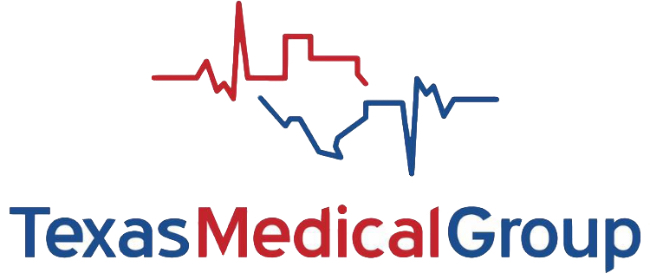
Responding to the EEOC’s Increased Focus on Mental Health Discrimination
As society’s understanding of mental health continues to grow, so has government acknowledgment and efforts to protect workers with such conditions. Workers who have a mental health condition, such as anxiety or depression, are often protected against discrimination and harassment at work because of the condition. They may also have workplace privacy rights and a legal right to reasonable accommodations to help them perform the essential functions of their jobs.
The U.S. Equal Employment Opportunity Commission (EEOC) enforces the Americans with Disabilities Act (ADA), a federal law that protects individuals with disabilities. In most cases, individuals with diagnosed mental health conditions are covered under the ADA.
This article highlights mental health conditions, outlines the EEOC’s enforcement plans and offers ADA compliance guidance for employers.
Mental Health and the ADA
The ADA only applies to employers with 15 or more employees. The law defines “disability” as a physical or mental impairment substantially limiting one or more major life activities. When qualified job applicants or employees have a mental health condition meeting those criteria, they have workplace rights under the ADA. The ADA Amendments Act of 2008 broadened the definition of disability to provide legal protections against employment discrimination for more individuals with disabilities, including people with psychiatric disabilities. “Psychiatric disability” and “mental illness” are often used interchangeably. The term “mental illness” is typically used in a medical context to refer to a wide range of emotional and mental health conditions. In contrast, “psychiatric disability” is typically used in a legal or policy context to refer to impairments covered under the ADA
The National Institute of Mental Health estimates that about 18% of U.S. workers have a mental health condition in any given month. This means that psychiatric disability is one of the most common types of disability covered under the ADA. Since mental health conditions can substantially limit brain function, individuals with such disorders will usually be determined to have an ADA-covered disability. The following mental health conditions may qualify under the ADA:
· Attention-deficit/hyperactivity disorder (ADHD)
· Bipolar disorder
· Schizophrenia
· Generalized anxiety disorder
· Major depression
· Obsessive-compulsive disorder (OCD)
· Panic disorders
· Personality disorders
· Post-traumatic stress disorder (PTSD)
Examples of reasonable accommodations for an employee with a mental disability may include:
· Allowing the employee to telework
· Allowing more frequent breaks
· Alternating supervisor methods (e.g., providing written instructions and providing more frequent or different reminders of tasks and due dates)
· Changing the employee’s work schedule
· Changing the employee’s work location (e.g., moving to a quieter space or allowing the use of a white noise machine or headphones)
· Reassigning to a vacant position
· Permitting a leave of absence under the Family and Medical Leave Act, state law or company policy
EEOC Enforcement Plans
In fiscal year (FY) 2021, employee allegations of unlawful discrimination based on mental health conditions accounted for about 30% of all ADA-related EEOC-filed charges. That figure significantly increased from the 20% reported in FY 2010. Anxiety and PTSD are the leading conditions contributing to this trend.
The EEOC recently released its strategic enforcement plan (SEP) for FYs 2024-28, emphasizing a greater focus on discrimination against vulnerable populations, including employees with mental health disorders. The plan aims to focus and coordinate the agency’s work to advance equal employment opportunities sustainably.
Employer Guidance
Supporting employees battling mental health conditions is not only important for compliance reasons. While organizations seek to avoid liability under the ADA, support and guidance can help foster an inclusive environment for employees with mental health conditions.
Consider the following employer strategies to stay compliant and create a supportive culture:
· Monitor EEOC compliance. Organizations should stay current on all EEOC updates and consult local legal counsel before making any workplace changes. Employers can be proactive with compliance responsibilities by setting calendar reminders well before deadlines and meeting regularly to review compliance with EEOC guidance.
· Review workplace policies. Various workplace policies have the potential to generate discrimination claims. Employers can review and assess policies such as background-check practices, pre- and post-hire personality or behavioral tests, inequitable leave policies and unnecessary physical requirements.
· Review compensation practices. When reviewing their compensation practices, organizations may discover disparities that adversely affect employees based on certain protected characteristics. With a clearer picture, employers can then address those disparities to ensure equal opportunity.
· Train managers. Supervisors and managers can be trained to identify and respond to requests for reasonable accommodation to ensure decision-making isn’t based on outdated biases or misunderstandings about mental health.
· Train all employees. Mental health awareness can help fight the stigma often associated with conditions. Open and honest conversations about mental health can help foster an inclusive work environment. Training can help increase empathy and understanding to ensure all employees feel valued, respected and part of the team.
Summary
As outlined in the EEOC’s latest SEP, the federal government continues to crack down on organizations that discriminate against workers with mental health conditions. As such, employers should continually monitor for EEOC updates and review applicable workplace policies and practices that could cause a discrimination claim. Aside from compliance, mental health awareness is critical for fostering a successful and inclusive workplace environment.
This HR Insights is not intended to be exhaustive nor should any discussion or opinions be construed as professional advice. © 2023 Zywave, Inc. All rights reserved.

Discussion
There are no comments yet.